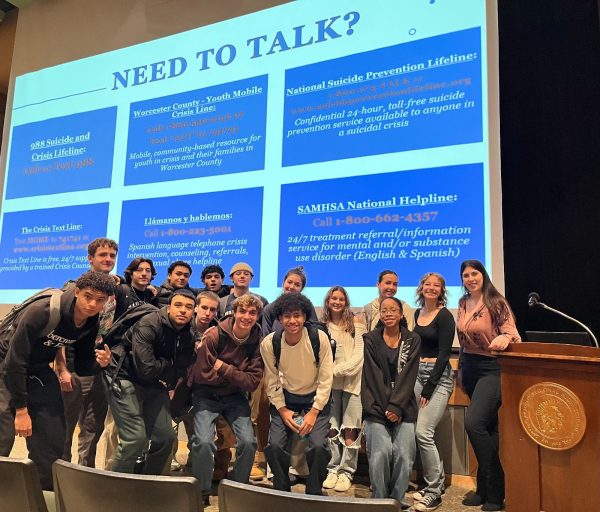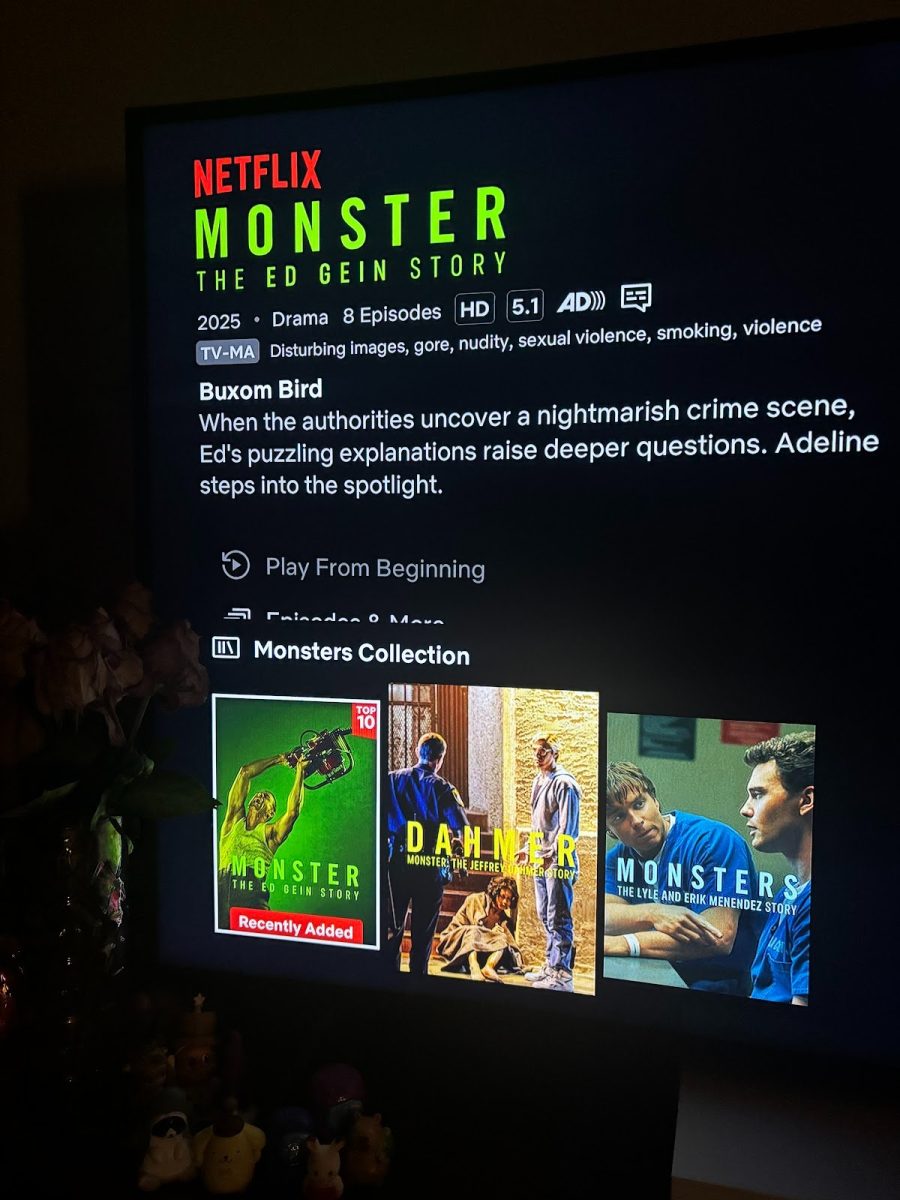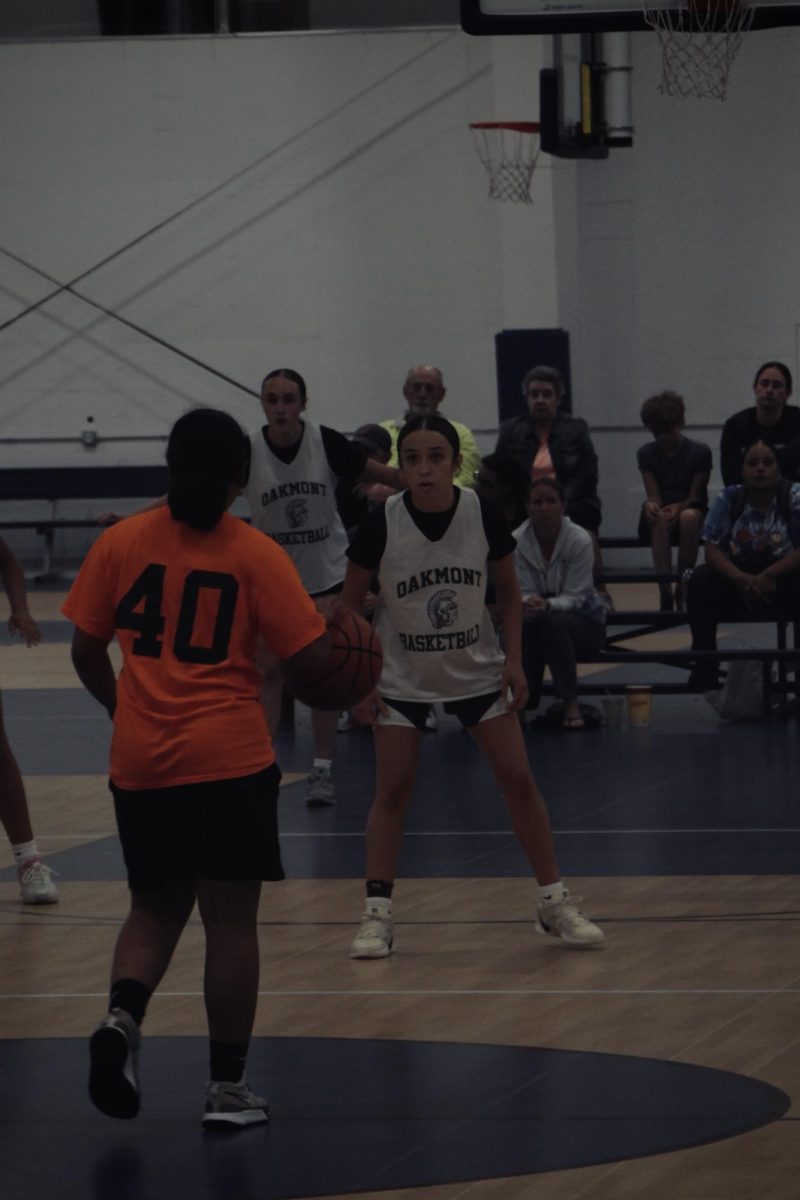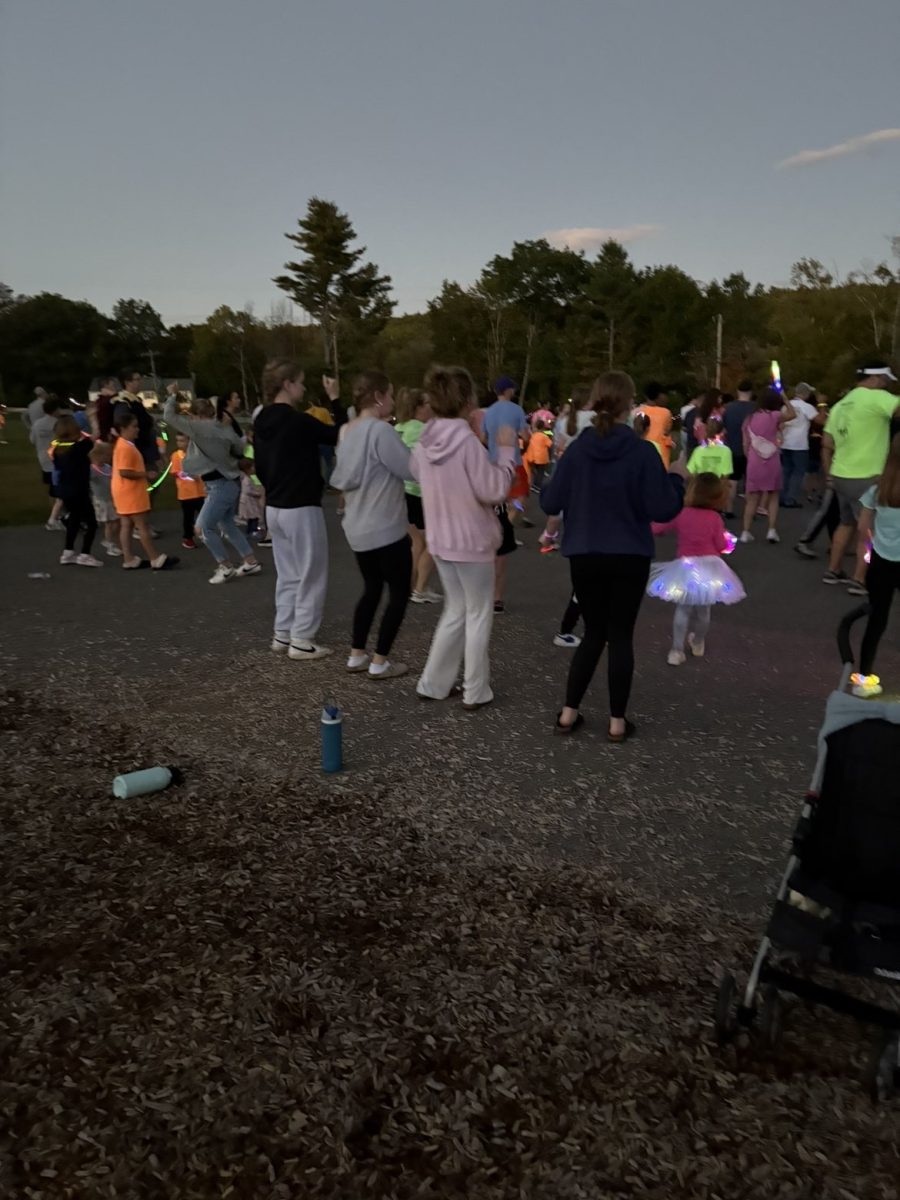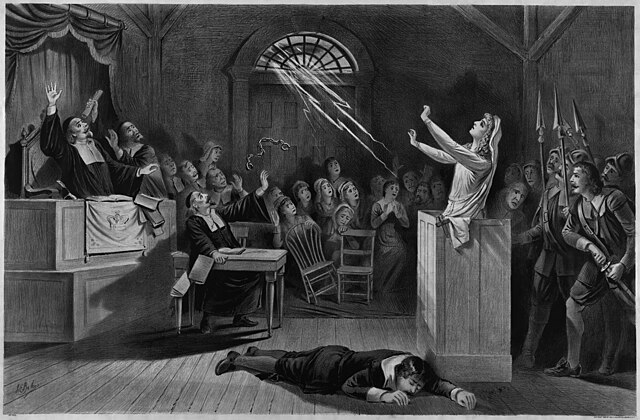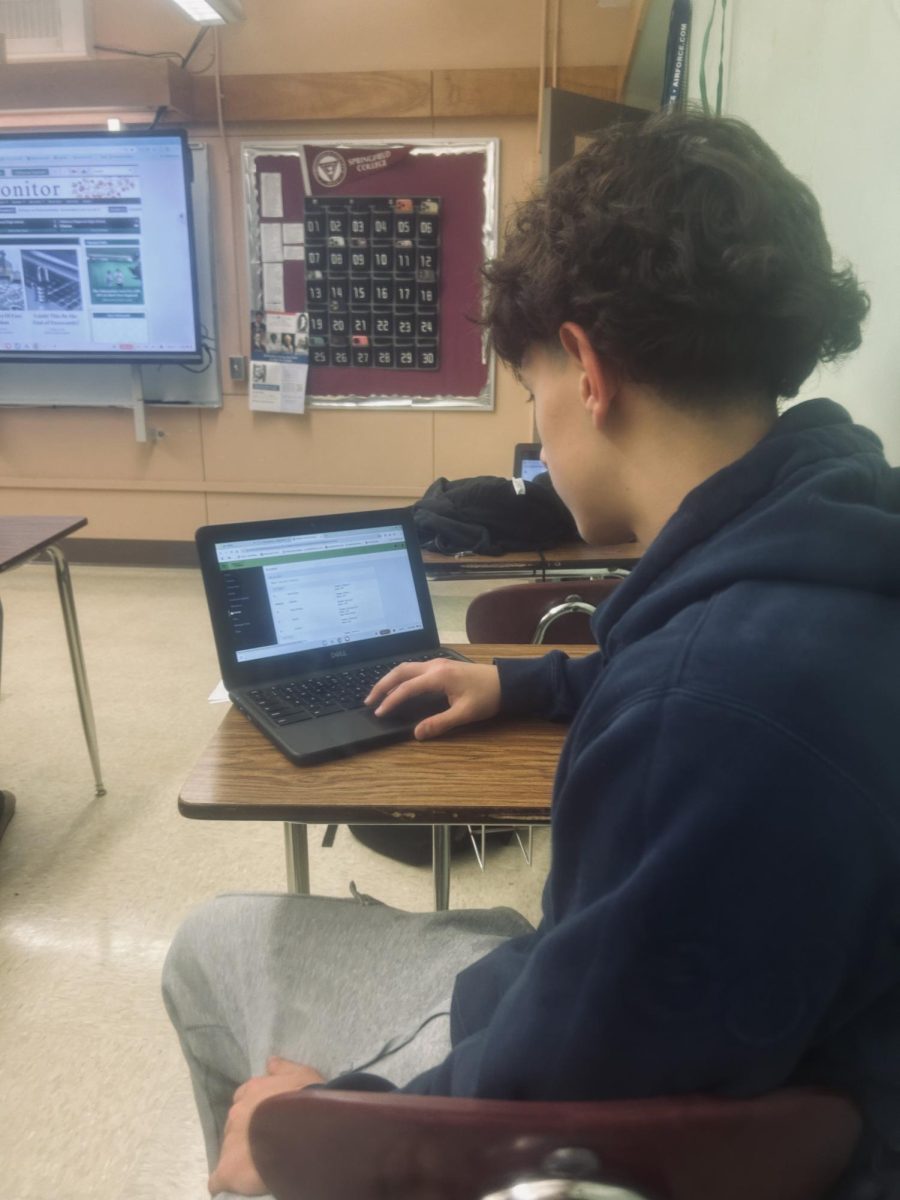DA Office and Programs Offered
Expert representatives from Worcester County District Attorney’s Office have been traveling all around Central Massachusetts to different schools, across 16 different cities and towns, to give presentations about various topics. On February 1st and 2nd, representatives Hope Rudinski and Julia Baronowski presented their Cyber Safety and Bullying Prevention presentation to all students at Oakmont.
The presentations the DA’s office offers include topics such as cyber safety and bullying, underage drinking, hazing, teen dating violence, drug prevention, and the dangers of sexting. However, the cyber safety and bullying prevention program is the most requested from schools across Central Mass. The DA’s Offices´ main goal is to “prevent a crime rather than have to solve one.”
Roles In Bullying
Rudzinski defined bullying as repeated acts of aggressive behavior. Bullying is a major issue in the United States. Rudszinski stressed, “It matters what you say to each other.” Bullying is a learned behavior that can be unlearned.
Some major takeaways from the presentation were understanding that there is more than one person involved in a bullying situation. Students at Oakmont learned that it’s almost like a cycle. It starts with the bully, which moves onto its target, and then leads to the bystander or upstander.
Being an upstander can be as simple as checking in on the person that is receiving the bullying, asking how you can help them, having resources ready if you need someone to contact, and bringing them to talk with someone.
Dangers of Social Media
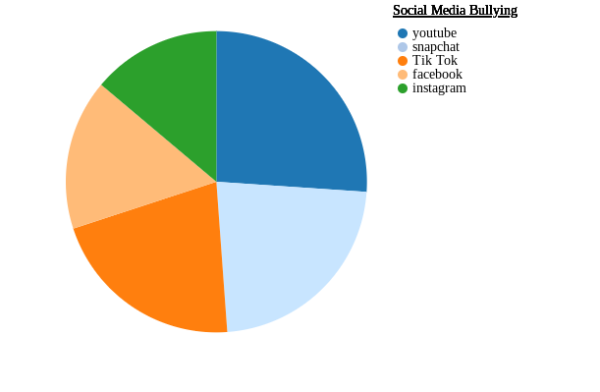
When asked in the presentation if students use social media, almost every hand was raised. It is important for teens to be educated on the dangers of social media and how to be safe and responsible while using them.
Being unsafe on social media can look like many different things; some examples that were given include, stealing passwords, catfishing, making anonymous pages to target someone, posting people’s personal information and taking someone’s photo without consent.
Representative Rudzinski stressed the fact to the students that, “delete does not exist.” After learning about things such as a digital footprint and iCloud, it left students with a different perspective of it all. Freshman Stella Duchenes said in an interview, “It definitely made me think way more about my actions. I think the presentation will help people think about what they are doing and how that will affect their futures.”
Tips for Being Safe Online
- Don´t give out personal information
- Don´t meet someone in person that you´ve only interacted with online
- Don’t send inappropriate photos of yourself to anyone
- Always tell a trusted adult if something feels wrong or unsafe
- Have private social media accounts
- Document cyberbullying
- Watch out for suspicious behavior
Cyberbullying
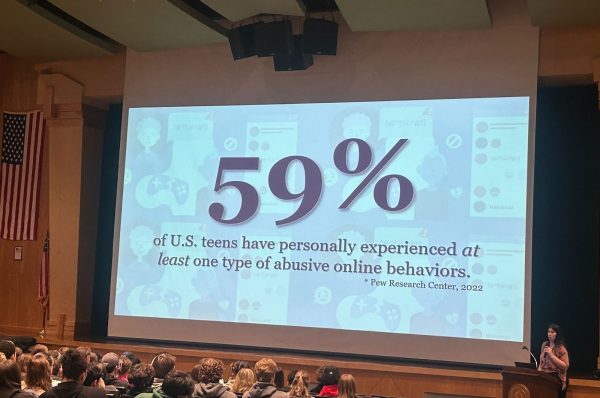
According to a 2019 poll issued by dosomething.org, nearly 37% of kids have been bullied online between the ages of 12 and 17; furthermore, 30% of those people have had it happen to them more than once. These were also only reported cases, the number is likely higher. It is a persistent issue most commonly occurring in middle and high schools that has not gone away. Some signs that a person might be getting cyberbullied or bullied include…
- Decrease in attendance (school, sports, work, etc.)
- Decline in grades
- Loss of interest/ motivation
- Violent behaviors and conflicts with others
Impacts of Cyberbullying
Rudzinski and Baronowski explained two real-life cases that resulted from bullying. In Springfield Massachusetts, Joseph Walker Hoover took his own life at the age of 11 by hanging himself. He was getting bullied by people for how he looked, dressed, and acted, and it became too much for him. The second case was in South Hadley, where 15-year-old Phoebe Prince committed suicide from severe bullying. Her story was more focused around cyberbullying from social media platforms like Facebook along with text messages.
The real-life examples that both representatives talked about had left students with an impactful message. Freshman, Cecelia Cears was asked if she thought the presentation was informational and her response was, “It really opened my eyes to the consequences of the things I do online.”
MA State Laws About Bullying 7
As a result of the amount of suicide deaths caused by bullying, in May 2010, Massachusetts implemented anti-bullying laws to help prevent further deaths and suffering. The first law is called the Criminal Harassment Statute. This states that people are legally protected from being bullied. The aggressor may serve up to 2 ½ years in jail, and pay up to a $1,000 fine, depending on the severity of the case. The second law is An Act Relative to Bullying. This states that if a student at school is being bullied, the school district is obligated to protect the victim.
Massachusetts also has implemented laws to protect minors from cyberbullying. They are called Dissemination of Child Pornography, and Possession of Child Pornography. If you are involved with either of these, it could cause you to be registered as a sex offender for life. Even though people don’t think what they do online will come back around, as stated earlier ¨delete doesn’t exist¨, and your digital footprint could get you in big trouble with the law.
Junior Operator License (JOL) Safety
Officer Andrew Loescher, a school resource officer at Oakmont and patrolman at Westminster police department gave a short introduction to kick off the cyber safety presentation with an informational speech about JOL safety. Most juniors and seniors at Oakmont have their licenses, and being reminded of the regulations and rules are a huge part of the privileges of driving.
Loescher touched on the topics of driving under the influence, open container, possession of weapons and drugs, as well as speeding. Discussions about drug and substance abuse were also brought up during this presentation. In addition to the chargeable offenses and fines of breaking these laws. The fines listed for DUIs are $500, up to 2 ½ years in the House of Correction, and 1 year license suspension for the first offense on a JOL. The consequences for second and third offenses are significantly greater.
After the presentations, we interviewed Officer Loescher and got his perspective on the subjects of bullying and cyberbullying awareness. We asked him if he thought these were real issues that are prominent at Oakmont. His response was, “These are definitely substantial issues at Oakmont, especially when you add in the mental health struggles that all of these students face every day. The presentation really brought awareness to the results of these actions, and I think that all of the resources listed at the end for people to reach out to if needed was great.”
Resources
At the end of the presentation, Rudzinski and Baronowski both left the Oakmont students with open eyes and many resources that could be contacted if anyone was being bullied, or knows someone that is. These resources include…
- Suicide and Crisus Lifeline: Call or Text 988
- Worcester County-Youth Mobile Crisis Line: 1-866-549-2142
- National Suicide Prevention Lifeline: 1-800-273-TALK
